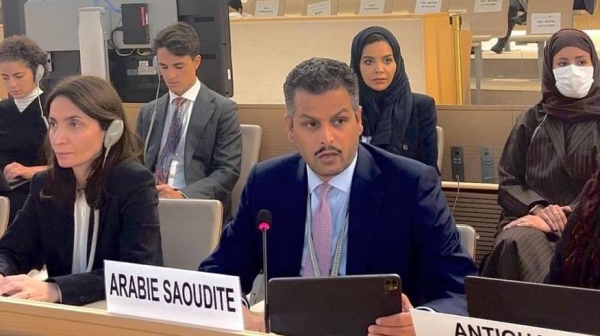Ambassador Abdulmohsen bin Khothaila, the Kingdom’s Permanent Representative to the United Nations in Geneva, recently addressed the UN Human Rights Council on the critical issue of space debris and its potential implications for human rights. Representing 123 countries, he emphasized the importance of awareness regarding outer space sustainability in order to continue benefitting from space technology for human well-being. While acknowledging the significant benefits that advancements in space technology have brought to humanity, such as enhancing global communications and disaster management, he also highlighted the risks posed by space debris to the infrastructure supporting these operations, which could potentially hinder efforts to protect and promote fundamental human rights.
Ambassador Khothaila pointed out that space debris poses challenges that directly impact the achievement of Sustainable Development Goals, particularly Goal 9 on Industry, Innovation, and Infrastructure, and Goal 11 on Sustainable Cities and Communities. He stressed the importance of effective space debris management to ensure sustainable development and continued access to critical technologies that facilitate weather monitoring, disaster response, and urban planning. The UN Office for Outer Space Affairs (UNOOSA) and the Committee on the Peaceful Uses of Outer Space (COPUOS) also underscored the significance of managing space debris for the safety and governance of outer space operations, highlighting its importance for international security, environmental protection, and satellite services that are essential for human rights and development.
In light of the increasing amount of space debris and its potential implications for human rights, there is a growing need for effective space debris management strategies to safeguard the benefits of space technology for humanity. This includes implementing measures to mitigate the generation of new debris, as well as developing technologies and policies for the removal and disposal of existing debris. Cooperation between governments, international organizations, and private sector entities is crucial in addressing this global challenge and ensuring the sustainable use of outer space for the benefit of all.
Space debris not only poses risks to the infrastructure supporting important space operations, but also has the potential to disrupt satellite services that are essential for various aspects of everyday life, including communication, navigation, and disaster response. As such, effective space debris management is critical for ensuring the continued functioning of these services, which play a crucial role in promoting human rights and supporting sustainable development. By addressing the issues posed by space debris, stakeholders can work towards creating a safer and more sustainable environment in outer space that benefits all of humanity.
The implications of space debris go beyond just technical and operational challenges, extending into the realm of international security and environmental protection. With an increasing number of countries and commercial entities conducting space activities, the risks posed by space debris are only expected to grow in the coming years. By addressing these challenges through coordinated action at the international level, stakeholders can work towards ensuring the safety and sustainability of outer space operations, while also promoting the protection of human rights and the advancement of global development goals.
In conclusion, Ambassador Abdulmohsen bin Khothaila’s remarks at the UN Human Rights Council underscore the critical importance of addressing the issue of space debris and its potential implications for human rights. By raising awareness of the challenges posed by space debris and highlighting the need for effective management strategies, stakeholders can work towards ensuring the continued benefits of space technology for humanity. Through coordinated efforts at the international level, countries, organizations, and private sector entities can mitigate the risks posed by space debris, promote the sustainable use of outer space, and safeguard the essential satellite services that support human rights and development around the world.


























